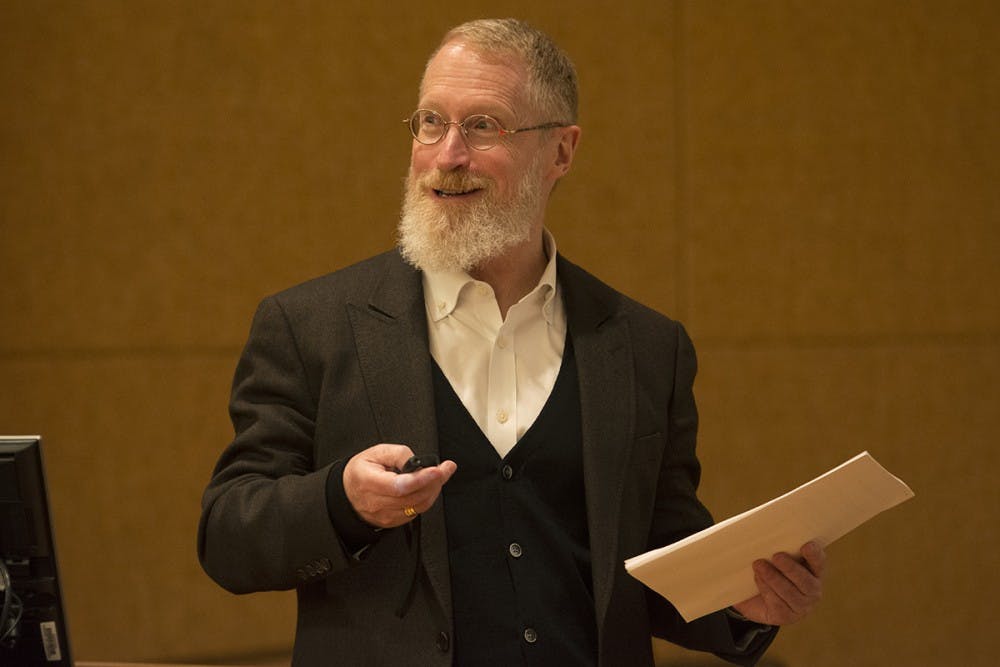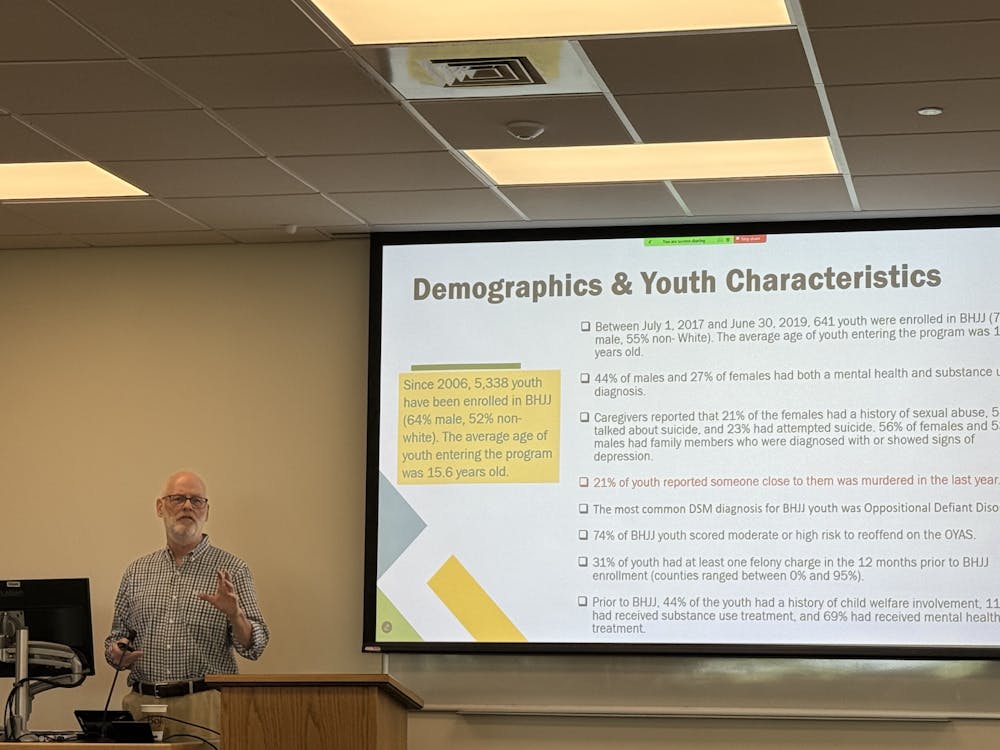HBRA Architects and the Alderman Library renovation planning committees hosted two open forums for students and faculty Thursday to address the planned renovations. The two meetings represented the third and fourth of the eight planned public forums taking place between Feb. 7 and 22.
Opened to the public in 1938, Alderman Library now has many systems that are out of date, such as heating, plumbing, and fire safety, and currently suffers from inefficiencies of space and layout. With a proposed cost of $160 million, the University is currently working to develop an effective plan for the massive library renovations. Construction is scheduled to begin in 2020.
The forums — divided into separate student and faculty sessions each day — are designed to provide current information about the planned Alderman renovations to the public, as well as to hear questions and concerns from attendees.
Each session was 90 minutes long and held in the auditorium of the Albert and Shirley Small Special Collections Library, Clemons Library or Alderman Library. They are intended to encourage library users to express their concerns and thoughts towards the upcoming renovations.
At Thursday’s faculty meeting, University Librarian John Unsworth, HBRA architect Aric Lasher and Judie Thomas, senior director of academic engagement, presented their initial plans for the renovation and restoration project. They acknowledged the difficulties of working with a historic building such as Alderman Library.
“What we do as architects, particularly when working with a historic building, is we perform a lot of analysis,” Lasher said. “We look at the existing building, how it works, how it doesn’t work, what were things constant over time, what is loved and still embraced and what things have become obsolete.”
While the project is in its introductory stage, the plan includes complete demolition of old and new stacks, potentially converting the sun wells into study space and the preservation of many culturally significant rooms. The renovated library is also intended to be LEED-certified and more accessible.
Although the plan is intended to increase study space and efficiency while address deficiencies, such as the heating and cooling systems, faculty concerns centered around the potential for decreased shelf space in the new Alderman.
“If the book collection in the new library were to dip significantly,” a retired professor in attendance said, “I think on the basis of the description of how upper-level students do research using books in the stacks, that kind of loss would be viewed as a significant loss to that part of the community.”
The 2017 announcement of the planned large-scale renovations to Alderman has been met with some pushback from the University community, most notably in the form of an online letter and petition. The petition is managed by John Bugbee, a doctoral candidate in religious studies, and currently has 286 signatures from undergraduate and graduate students, professors, alumni, community members and library staff.
Addressed to Unsworth, Lasher and other architects at HBRA and Provost Thomas Katsouleas, the letter features two paragraphs detailing the purpose of the petition and the concerns raised by the renovation.
“The renovations give us an exciting, once-in-a-century chance to recreate a place for the growing collection of books that serve as the university’s core laboratory for humanities research,” the main body of the letter reads. “But we are troubled by the possibility that, despite repeated contrary requests from faculty, students, and community borrowers spanning the last several years, ‘new Alderman’ may yet restrict our browsable, on-site access to books and other physical materials rather than expanding it.”
The letter is then signed by those who endorse the message of the letter, with an open comments section placed below for the sharing of personal experience and opinions in regards to the Alderman renovations.
The comments section of the letter is filled with personal insights, testimonies and quotes regarding the potential academic and community impacts of the planned Alderman renovations.
“The world-renowned balance of technological and sociological studies in U.Va.’s SEAS depends primarily on the bibliographic pillars at each end of the Academical Village,” wrote John-Paul Donlon, a graduate student and research assistant. “My scholastic and personal understanding would be nothing without the advantages of the large, accessible collections within both of these libraries.”
Professors and faculty also added to the comments section.
“Alderman’s reputation as one of the finest university libraries in the U.S. will suffer irreparably, and with good reason, if the open stacks policy is constrained,” wrote Vivian Thomson, a retired professor of environmental sciences and politics. “I cannot count the number of times I have come across unexpected, valuable finds by browsing in Alderman’s stacks. I have always encouraged my students to do the same.”
This letter and petition is part of an ongoing conversation between Unsworth, other faculty, HBRA architects and other community members.
Unsworth responded to the letter and petition in a Feb. 6 email to Bugbee, which was posted publicly at Unsworth’s suggestion in the comments section of the letter.
“I appreciate the recruitment of interest and participation, which is most of all my goal in this month of consultations with the architects and other project personnel,” Unsworth wrote in his response. “I would observe that the maximalist collections position is ideological rather than pragmatic in nature, and while I generally subscribe to this ideology, I am faced with pragmatic decisions that must be made.”
Unsworth did assert, however, that he would review and consider the thoughts and concerns present in the letter, writing that he would “make sure they become part of the record of the project.” Unsworth welcomed any further comments that would be submitted.
Signatures and comments continue to be added to the open petition as the process of Alderman’s renovation continues.







